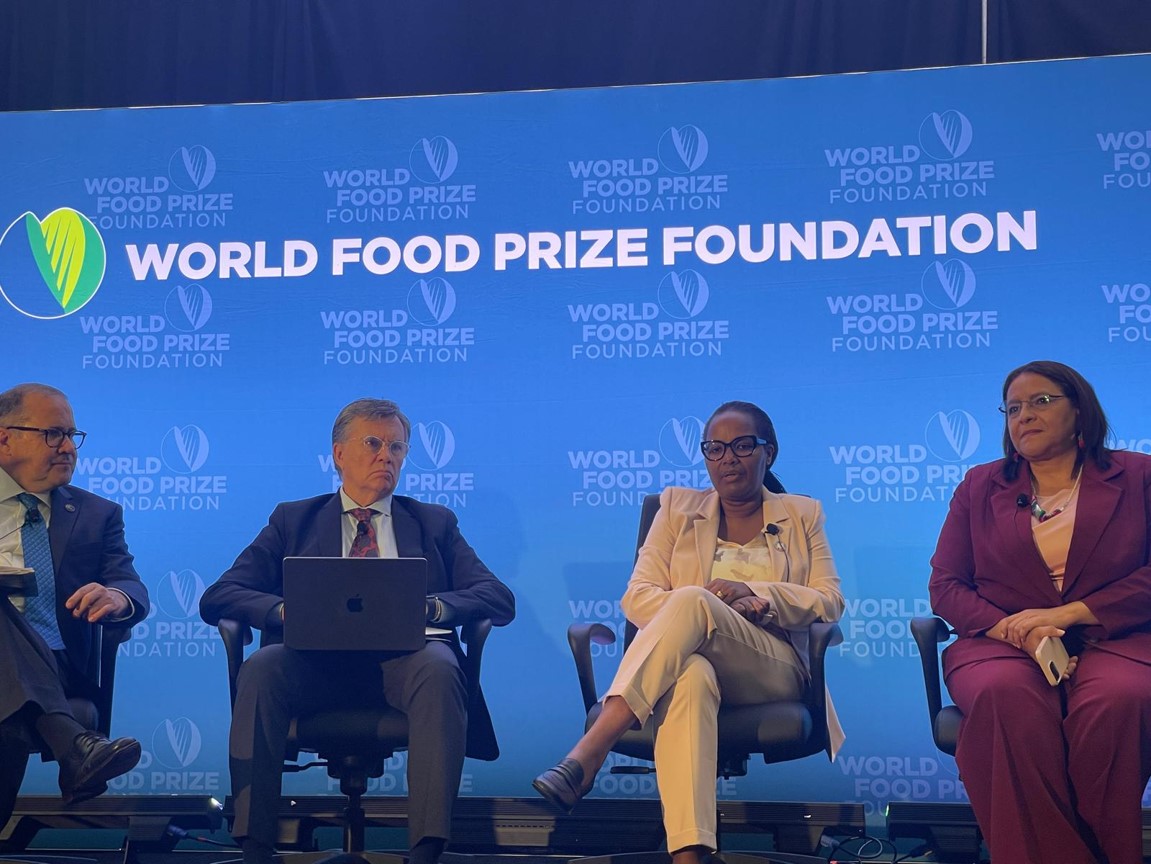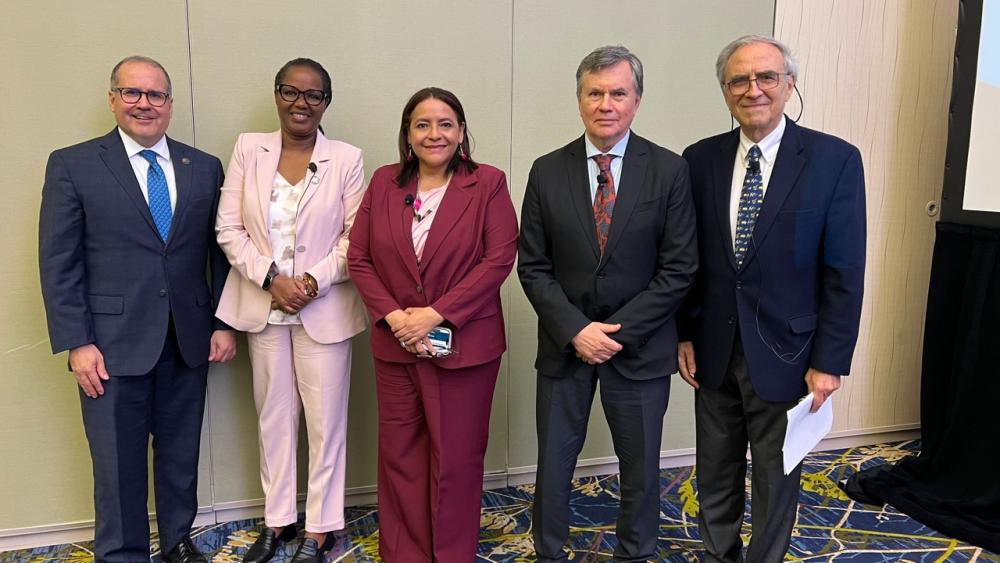The conference, which every year brings together world leaders and experts in agricultural development and public policy in Des Moines, Iowa, is organized by the World Food Prize (WFP) Foundation, inspired by the legacy of scientist Norman Borlaug, father of the so-called Green Revolution, which multiplied agricultural production and saved millions of people from starvation.

Des Moines, Iowa, 31 October 2024 (IICA). A new narrative is needed that makes skewed perspectives a thing of the past and foregrounds the strategic value of agriculture in the Americas for global food security and environmental sustainability, affirmed the Director General of the Inter-American Institute for Cooperation on Agriculture (IICA), Manuel Otero, at the 2024 Norman E. Borlaug International Dialogue.
The conference, which every year brings together world leaders and experts in agricultural development and public policy in Des Moines, Iowa, is organized by the World Food Prize (WFP) Foundation, inspired by the legacy of scientist Norman Borlaug, father of the so-called Green Revolution, which multiplied agricultural production and saved millions of people from starvation.
IICA is a key player in the three days of discussions on the crucial current and future challenges for food security. The event brings together participants from more than 65 countries, including many of the most innovative people involved in efforts to eradicate hunger across the globe.
“Creating a New Narrative: Agrifood Systems for Healthy People and a Healthy Planet” was the title of the panel organized by IICA, in which the participants were Laura Suazo, the Secretary of Agriculture and Livestock of Honduras (the first woman to hold that position in the Central American country); Gerardine Mukeshimana, the Vice-President of the International Fund for Agricultural Development (IFAD) and former Minister of Agriculture and Animal Resources of Rwanda; and the Director General of the inter-American organization, Manuel Otero. The moderator was the Deputy Director General of IICA, Lloyd Day; economist and IICA special advisor Eugenio Díaz-Bonilla also took part.
The distinguished audience of fellow participants in the Borlaug Dialogue included Victor Villalobos, former Secretary of Agriculture of Mexico and former Director General of IICA.
Vulnerability and climate change
Suazo gave an overview of the situation in Honduras, a country where most family farmers are extremely vulnerable to the impact of climate change. Honduras is part of the so-called Central American Dry Corridor, where recurrent droughts have damaged natural resources and affected agricultural yields.
Secretary Suazo provided details of the efforts being made in Honduras to help small farmers –who produce the food on the tables of their fellow Hondurans– build resilience and maintain their roots in the countryside, with long-term public policies never implemented before.
Mukeshimana referred to the experiences of IFAD, one of the three United Nations agencies specializing in food and agriculture, which has implemented hundreds of projects to combat hunger in rural areas of developing countries.

Otero emphasized that a series of geopolitical events have placed agriculture at the top of the global agenda. The development is of great significance for the Americas, which are not only the world’s biggest net food exporter, but also possess the most valuable natural resource base.
“To capitalize on our opportunities, we must be clear that we the need to construct a new narrative about agriculture that goes beyond the old, negative one,” Otero explained.
The negative narrative views agriculture as an extractive sector, a generator of primary products, and disconnected from the rest of the economy. IICA is already working with Columbia University in New York to construct a narrative that shows the true face of a sector that produces food, fiber and energy for the world, while at the same time protecting biodiversity and working to mitigate climate change.
Some of the elements identified as part of the new narrative are the fact that agriculture is part of a broader food ecosystem, that food security means everyone having access to healthy, nutritious food all of the time, and that agriculture is part of the solution to the climate crisis.
“Agriculture also plays an important role in energy security, through biofuels,” said Otero, who suggested that international trade should not only be seen as a means to increase exports, but also as a tool for sustainable development and social inclusion.
“A new narrative for agriculture can change mindsets, encourage collaboration through new diplomacy, and align good agricultural practices, expanding the adoption of sustainable systems that are not only more productive but also regenerative, resilient to climate change and socially just,” he concluded.
Díaz-Bonilla pointed out that the Americas are crucial for the planet’s food security and environmental sustainability. Finding a balance between those two functions requires a sustained effort in the fields of science, technology and innovation.
More information:
Institutional Communication Division.
comunicacion.institucional@iica.int











